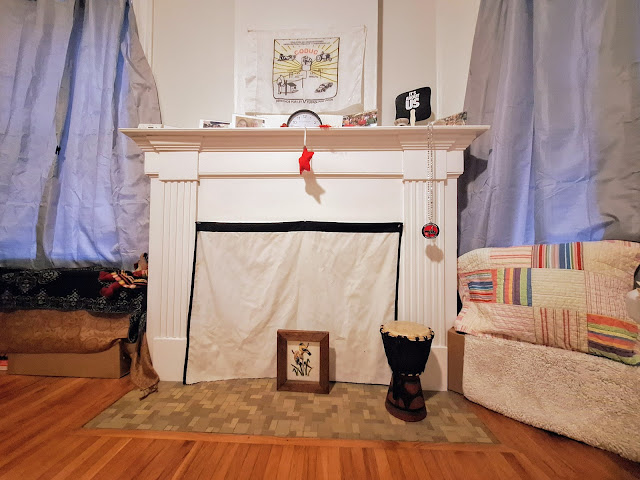Although my apartment offers charm in views, design, and location, it is as breezy inside as a log cabin that has lost its chinking.
For some reason, this state of affairs reminds me of the so-called bozi flower in Caucasus Georgia, aka prostitute flower. My apartment windows are as loose as a bozi's legs.
And the walls are cold. Because there ain't no insulation in this 100-year old building.
Sometimes I'll feel an actual push of cold air that flows by me, but when I get up to investigate where the hell it's coming from, it's untraceable. A frosty spirit?
During a recent two-week arctic blast, when temperatures sank into the single digits, my first thought upon awakening each morning was: "At least I'm not camping."
Cold comfort, as my living space was frigid.
I wore (and still wear) a hat to bed and for most of the day inside my place. I'm wearing it as I write this. During the day, I typically wear three layers of clothing.
Oh, sure, I could crank up the thermostat, but with the super-high ceilings, the billowy blasts of cold air coming through the windows and walls, with the registers affixed to the high ceilings, and electric heat pushed up such a long way through vents that are quite possibly lined with a thick layer of dust plaque - from a furnace of unknown age - which is way down in the basement of this old building, to which I have no access, thus I can't check the filter ("We change the filters twice a year!" say the property managers, as if that's a generous amenity) - and a bill that could easily hit $250 for just one month, I started out with a 65-degree thermostat setting before frugalizing even further by dropping it to 63 degrees.
Since the leaden cold has descended, I don't see my charming outside views because I've covered my windows with two cold-air barriers in addition to the blinds already installed: Plastic sheeting and fabric curtains, and for some windows, Reflectix, too. Against the walls below the windows, I've pushed bulwarks of boxes and pillows to block the cold air swooshing in through the frames.
 |
| My charmless winter decor to repel the cold. February 2024. Credit: Mzuriana. |
Other cold tales:
Rustavi [Caucasus Georgia]: Warmth Strategies
Birmingham, Alabama: An Annoyance of Facts
My winter in Birmingham was the very same that hit Houston so hard in 20/21. My winter in Birmingham is when I bought both an electric mattress pad and an electric throw to put on my bed.
The year I wintered in Ferguson, Missouri, in 2018, I said this: "No, no, no, no. I am finished with winters in cold lands." I made this proclamation after it snowed on Easter. In April.
Yeah, and now look what I've gone and done again.
At least I'm not camping.



